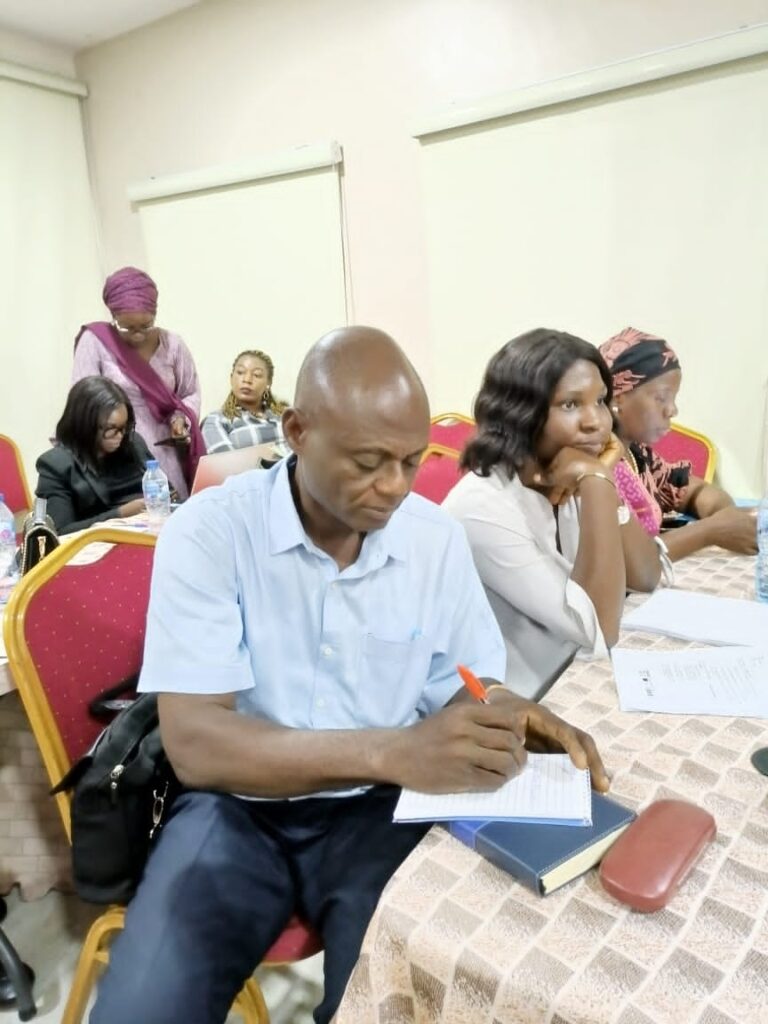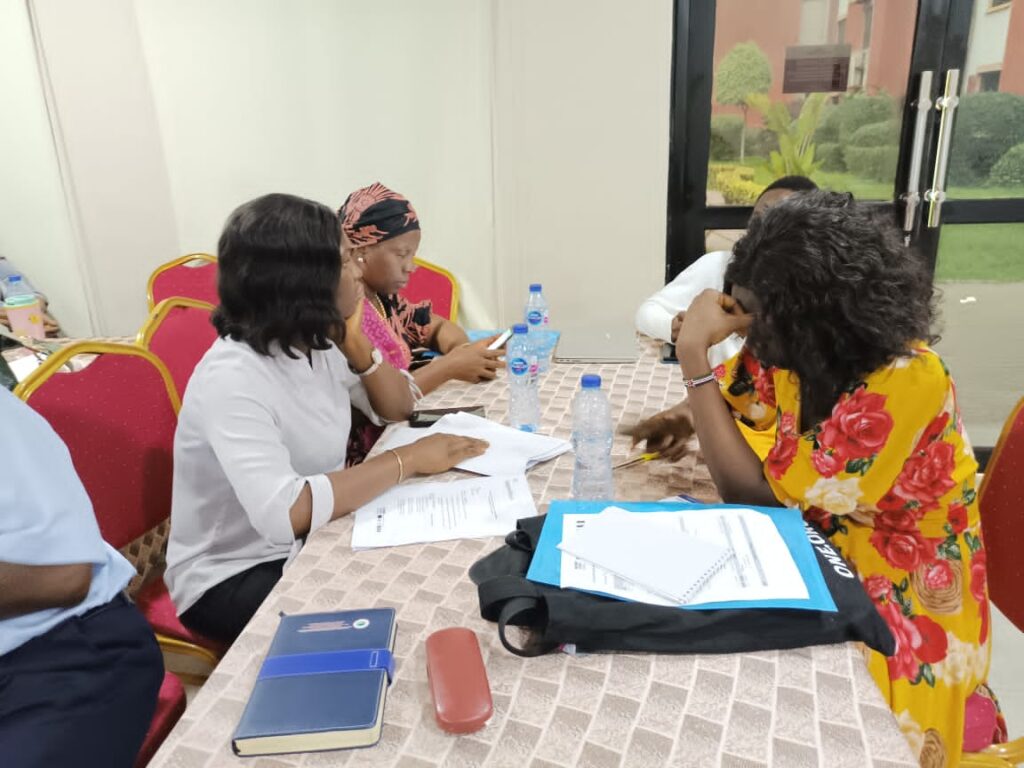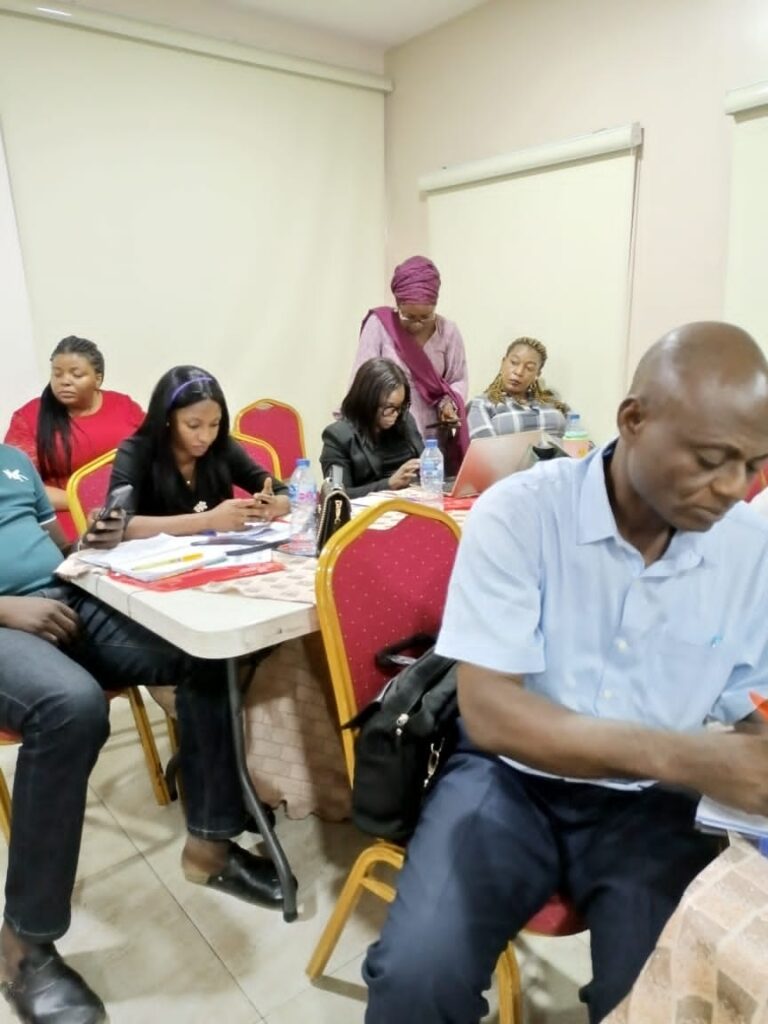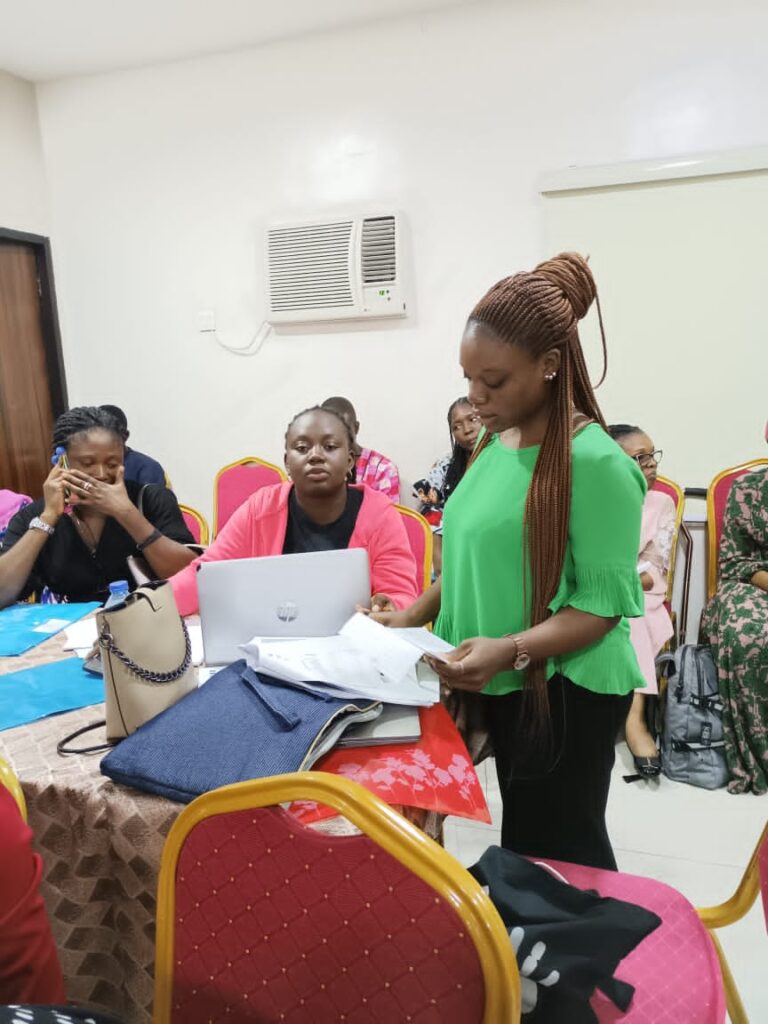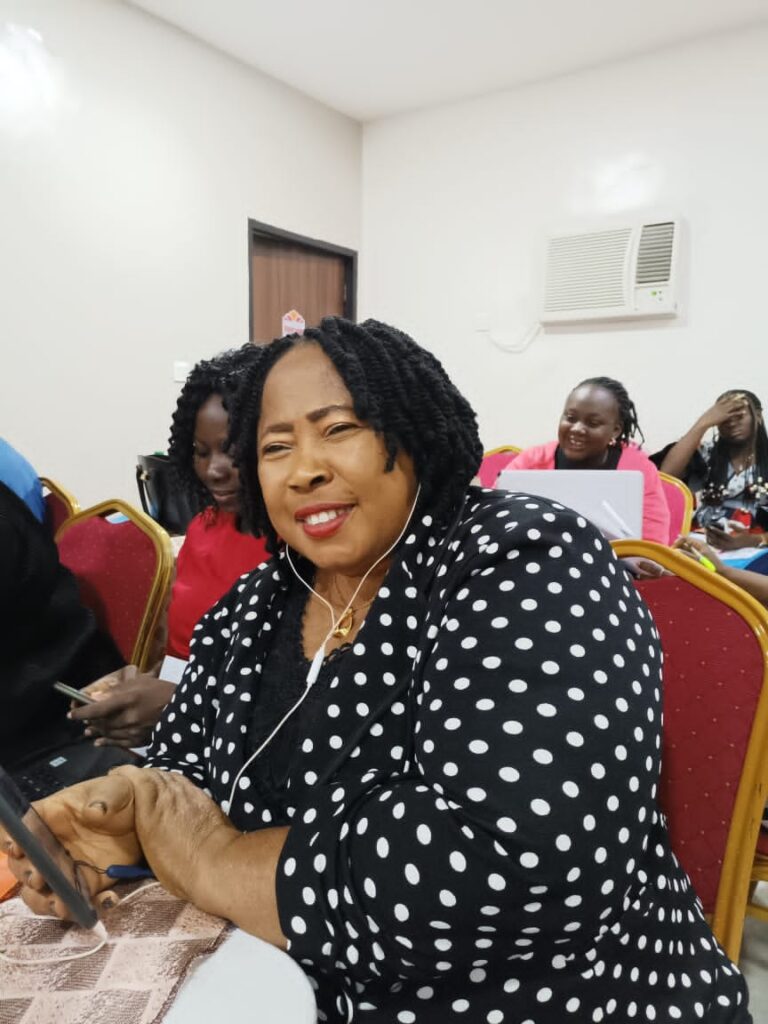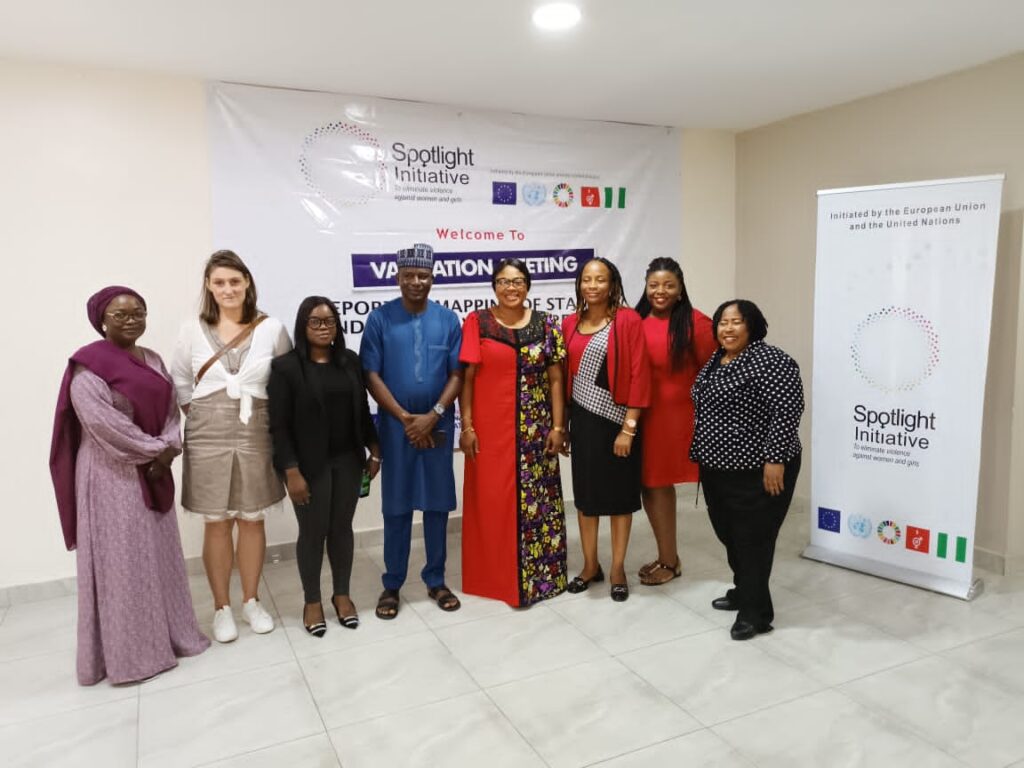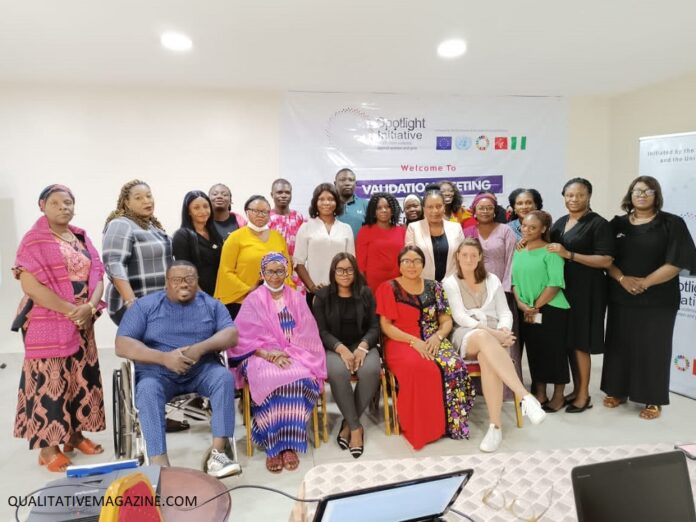A non-governmental organization, Women Initiative for Leadership Strategy and Innovation in Africa (Women Africa) has released a report on the state of gender-based violence response (GBV) in Nigeria.
The report which is developed with support from the European Union and United Nations Spotlight Initiative Programme through UNESCO is a mapping of critical response mechanisms across the thirty-six states and FCT in Nigeria. It provides comprehensive information on the current state of gender-based violence response in Nigeria with regards to available laws and policies, support system and structures, law enforcement, justice institutions, reporting channels and available coordination mechanisms.
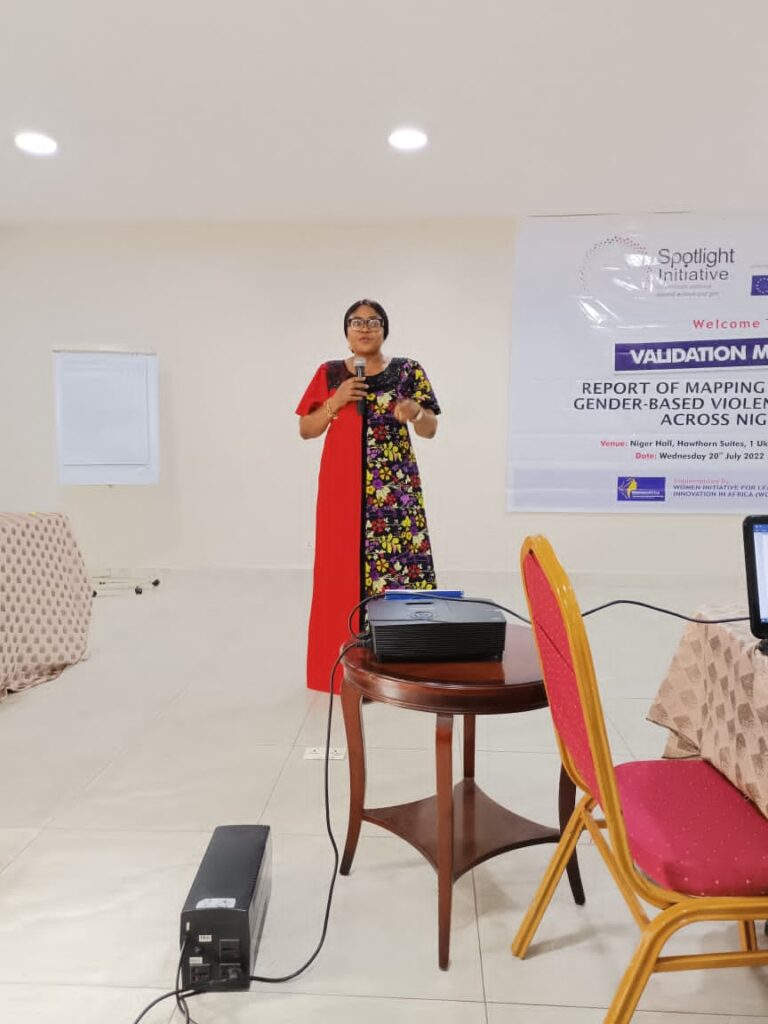
The Executive Director, Chinwe Onyeukwu who made this known on 20th July in Abuja, where the meeting was held, said “following the rise in fatal cases of sexual and domestic violence against women and girls recorded in Nigeria across the country during the four-month Covid-19 lockdown, the Federal Government of Nigeria, and the State Governors, under the aegis of the Nigeria Governors Forum (NGF), declared a State of Emergency on Sexual and Gender-Based Violence (GBV) in June 2020, and made commitments towards putting in place gender-based protection laws – including adopting the Violence Against Persons (Prohibition) Act (VAPP Act) and the Child Rights Act into states laws and strengthen implementation of the laws by ensuring speedy investigation and prosecution of perpetrators, and creating sex offenders register in each state to name and shame violators.
Since then, few studies have been carried out to map and assess the level of implementation of these commitments and the milestones achieved by various states in the country on gender-based violence and child rights interventions. Although the number of states that have adopted the Violence Against Persons Prohibition (VAPP) Laws, Child Rights Laws, and Disability Rights Laws across the states have increased. However, there is still limited information available regarding the existence and level of implementation of these laws”. She stated that it was on this premise, that informed the need for the research; To identify the available mechanisms and provide comprehensive information on GBV and Child Rights Protection in the country.
Over 50 stakeholders from relevant government agencies, civil society organizations and development partners under the EU-UN Spotlight Initiative Programme were in attendance at the one-day meeting. Participants at the meeting contributed to the validation of findings from the report.
In her remarks, a representative of the European Union and Programme Manager, Gender and Human Rights, Esmé Stuart stated that; “the context for the report came from the pandemic, within the pandemic that we saw in 2020 where we had huge numbers of people being victims of GBV because of COVID-19, restriction and because of being locked up at home in their house with perpetrators. Which saw commitments from the Nigerian government and the Nigerian governor’s forum as GBV was high on the national agenda. This report is part of efforts to track the commitments from states governments in terms of gender-based violence and translates it, into action for victims and survivors”.
Going further, she noted that in order “to consolidate the different efforts of various stakeholders the EU-UN Spotlight Initiative Programme, developed a National Gender-Based Violence (GBV) Barometer. The GBV barometer is a digital tool that provides regular updates on the state of GBV response in the country, it tracks accountability, identifies states with similar challenges, shares comparative analysis, and identifies areas for collaboration. It also provides current updates on state actors’ adoption and domestication of GBV protection laws, available services, and GBV hotlines, as well as state agency’s responses to GBV Management. Making the GBV barometer a key accountability tool that will help us to keep track of government commitments and also aid further GBV response”.
Similarly, representatives from the Federal Ministries of Women Affairs and Federal Ministry of Justice reaffirmed their ministries’ commitment and support for the elimination of gender-based violence in Nigeria in their goodwill messages. The representative from the Ministry of Justice noted that “It is indeed a very good initiative as mentioned by the EU representative, we are all experts working in the field with hands on deck to ensure justice and proper services are delivered to victims of GBV and all efforts would be in vain if the response mechanisms are not accessed to know their effectiveness and also know what needs to be done’’
The representative from the Federal Ministry of Women Affairs noted; “He brought greetings from the Honorable Minster, Hon. Dame Pauline K. Tallen, and reaffirm her passion and dedication to the plight of the Nigerian women, the Minster is ready to collaborate with development partners and the Civil Society Organizations to support any policy and program geared towards the eradication of GBV’.
While giving her closing and farewell remarks, Ms. Hadiza Aminu Dorayi, National Coordinator Spotlight Initiative and Gender Advisor to the United Nations Humanitarian and Resident Coordinator; lauded the commitment and dedication of the stakeholders for contributing to the success of the report. Furthermore, she reiterated that “The Joint European Union and the United Nations Spotlight Initiatives are committed to the elimination of all forms of violence and harmful practices against women and girls, and persons with disabilities facing intersecting forms of violence in Nigeria, so that women and girls can reach their full potential and contribute to nation-building”.
Some of the key findings from the report include:
- 32 states including the FCT have passed the Violence Against Persons Prohibition (VAPP) Act 2015 into law and gazetted in 15 states (including the FCT). States that are yet to pass the VAPP Act include Borno, Gombe, Kano, Katsina and Zamfara. The VAPP Act is an innovative piece of legislation that provides for a robust response, care, and support services to survivors of sexual and gender-based violence.
- There are now 32 Sexual Assault Referral Centres (SARCs) across 19 states including the FCT in Nigeria, where victims and survivors of sexual assault can receive medical assistance, counseling, and justice support services in a confidential space.
- The Child Rights Act 2003 has been signed into law in 29 states (including the FCT) out of 36. As of June 2022, only 17 states (including the FCT) have gazetted the law. The bill has been passed in the Yobe and Kebbi houses of assembly and is awaiting the governor’s assent, but Bauchi, Borno, Gombe, Kano, Katsina, Sokoto, Jigawa and Zamfara are 8 states that are yet to pass the CRA.
- The Sex Offenders Register (SOR) has been established by 10 out of 36 States in Nigeria. The states include Lagos, Ogun, Ekiti Bayelsa, Edo, Akwa Ibom, Bauchi, Adamawa, Kaduna and Abia state.
- 14 States including FCT have passed the Discrimination against Persons with Disabilities Prohibition laws. The states include Lagos, Anambra, Ekiti, Ondo, Plateau, Bauchi, Kano, Kaduna, Jigawa, Kogi, Niger, Kwara, Oyo and Niger.
Other information mapped in the report include the availability of government budget for GBV response at state and federal level with costed frameworks for implementation of VAPP and CRA, the existence of GBV courts, the availability of police family/gender desks, and GBV helplines both from government agencies and civil society organizations, existence of GBV forensic and lastly, number of GBV reporting channels and mechanisms at University level.
Through the GBV barometer, it is expected that Nigeria can have a one-stop information platform that provides a comprehensive analysis of response mechanisms on GBV in the country.
SOME PICTURES OF THE VALIDATION MEETING
